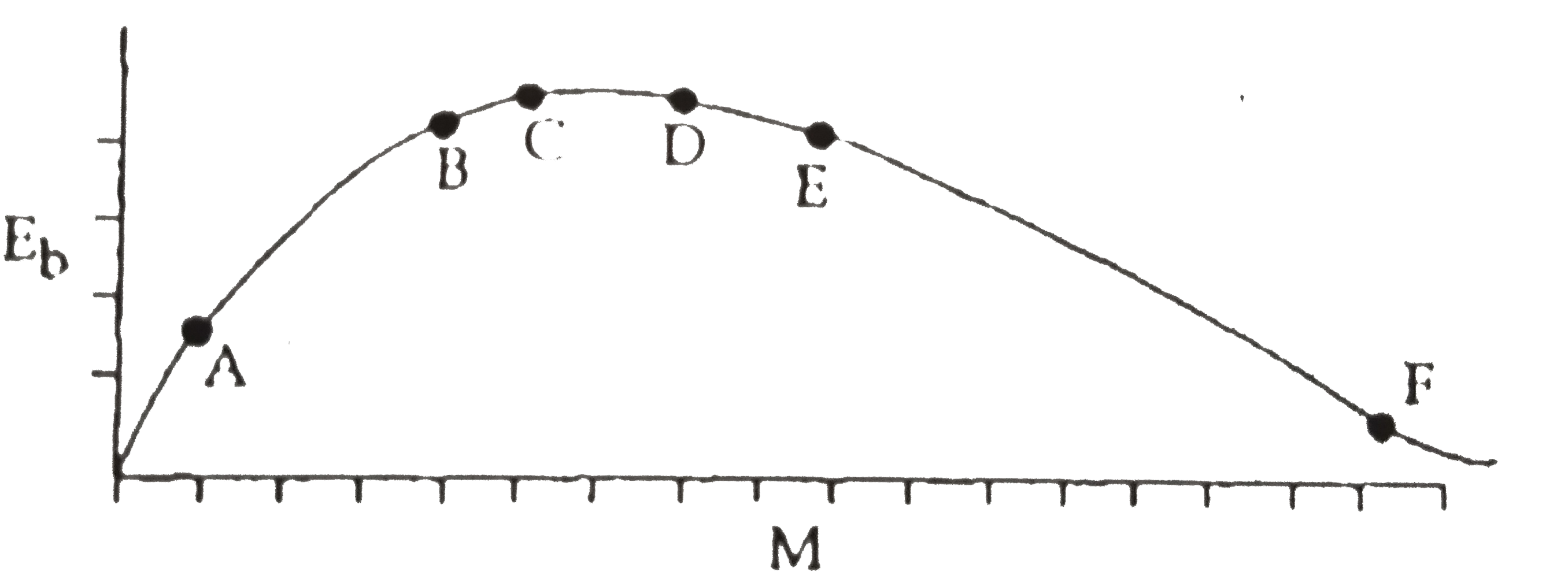Complete Solutions to Higher Order Thinking Skills of chapter NUCLEI of Class 12 book with complete answers and questions
| Class 12 | PHYSICS |
| Chapter | NUCLEI |
| NCERT FINGERTIPS | Higher Order Thinking Skills |
| Number Of Questions | 8 |
| Academic Year | 2023-24 |
Sometimes a radioactive nucleus decays into a nucleus which inself is radioactive . An example is : `""^38"Sulphur" underset"=2.48 h"overset"half-life"to ""^38 Cl underset"=0.62 h"overset"half-life"to ""^38 Ar` (stable)
Assume that we start with 1000 `""^38S` nuclei at time t=0 . The number of `""^38Cl` is of count zero at t=0 and will again be zero at `t=oo` . At what value of t, would the number of counts be a maximum ?
View SolutionThe deuteron is bound by nuclear forces just as H-atom is made up of p and e bound by electrostatic forces. If we consider the forces between neutron and proton in deuteron as given in the form of a Coulomb force but with an effective charge e': `F=1/(4piepsilon_(0)) (e'^(2))/r^(2)`
estimate the value of `(e'//e)` given that the following binding energy of a deuteron is 2.2MeV.
View SolutionA fission reaction is given by `_(92)^(236) U rarr_(54)^(140) Xe + _(38)^(94)St + x + y` , where x and y are two particle Consider `_(92)^(236) U` to be at rest , the kinetic energies of the products are deneted by `k_(xe) K _(st) K _(x) (2MeV ) and `Ky(2MeV) repectively . Let the binding energy per nucleus of `_(92)^(236) U, _(54)^(140) Xe and _(38)^(94)St be 7.5 MeV , 8.4 MeV and 8.5 MeV, ` respectively Considering different conservation laws, the correct option (s) is (are)
View SolutionHow long can an electric lamp of 100W be kept glowing by fusion of 2.0 kg of deuterium? The fusion reaction can be taken as `._1H^2+._1H^2to ._1H^3+n+3.17MeV`
View SolutionNuclei of a radioactive element `A` are being produced at a constant rate `alpha`. The element has a decay constant `lambda`. At time `t=0`, there are `N_0` nuclei of the element.
(a) Calculate the number `N` of nuclei of `A` at time `t`.
(b) If `alpha=2N_0lambda`, calculate the number of nuclei of A after one half-life of A, and also the limiting value of N as `trarroo`.
View SolutionIf `alpha=2N_0lambda`, calculate the number of nuclei of A after one half-life of A, and also the limiting value of N as
View SolutionThe element curium `._96^248 Cm` has a mean life of `10^13s`. Its primary decay modes are spontaneous fission and `alpha`-decay, the former with a probability of `8%` and the later with a probability of `92%`, each fission releases `200 MeV` of energy. The masses involved in decay are as follows
`._96^248 Cm=248.072220 u`,
`._94^244 P_u=244.064100 u` and `._2^4 He=4.002603u`. Calculate the power output from a sample of `10^20` Cm atoms. (`1u=931 MeV//c^2`)
View SolutionThe above is a plot of binding energy per nucleon `E_(b)`, against the nuclear mass M, A, B, C, D, E, F correspond to different nuclei. Consider four reactions
(i) `A + B rarr C + epsi` (ii) `C rarr A + B +epsi`
(iii) `D + E rarr F + epsi` and (iv) `F rarr D + E + epsi`
where `epsi` is the energy released ? In which reactions is `epsi` positive ?

View Solution
Higher Order Thinking Skills questions and complete solutions for chapter NUCLEI of MTG PHYSICS (ENGLISH) of Class 12